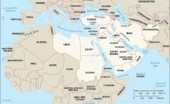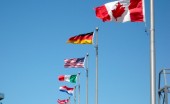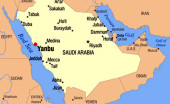Re Ian Bremmer 'Could third-party candidates upend the 2024 US election?' 3 April The current political movement in the USA…
Turkey/Turkiye July 2023 –
Written by Diana Thebaud Nicholson // April 1, 2024 // Europe & EU, Turkey/Turkiye // Comments Off on Turkey/Turkiye July 2023 –
26 March-1 April
The lesson from Turkey’s elections: Charisma is key to defeating a strongman
(WaPo) It’s a dangerous moment for Turkish strongman Recep Tayyip Erdogan. He has ruled comfortably for more than 20 years, with his political opponents squabbling and in disarray. But things are clearly changing. With a younger generation of leaders and mayors, Turkey’s main opposition party, the Republican People’s Party (CHP), beat Erdogan’s ruling conservative Justice and Development Party (AKP) in local elections this weekend for the first time ever.
There is no mistaking that this was a protest vote: Turkish voters expressed their discontent with the president and his policies less than a year after he won the general elections. Opposition candidates won across all major cities.
… More significantly, in the battle for Istanbul, the city’s popular mayor, Ekrem Imamoglu, decisively defeated Erdogan’s handpicked candidate.
… Imamoglu’s victory elevates the mayor to a de facto leadership role inside the opposition and makes him a likely competitor in the next presidential election, scheduled for 2028. As if to foreshadow this race, the mayor’s victory speech to a large crowd outside Istanbul city hall at midnight coincided with Erdogan’s concession speech in Ankara. Erdogan spoke humbly about engaging “boldly … in self-criticism,” while the younger Imamoglu roared onstage, proclaiming victory for “the republic and democracy” and the end of “the era of one man’s tutelage.”
In setback to Turkey’s Erdogan, opposition makes huge gains in local election
(AP) — Turkey’s main opposition party retained its control over key cities and made huge gains elsewhere in Sunday’s local elections, preliminary results showed, in a major upset to President Recep Tayyip Erdogan, who had set his sights on retaking control of those urban areas.
With more than 80% of ballot boxes counted, incumbent Istanbul Mayor Ekrem Imamoglu, of the Republican People’s Party, or CHP, was leading by a wide margin in Turkey’s largest city and economic hub, according to the state-run Anadolu Agency. Mansur Yavas, the mayor of the capital, Ankara, retained his seat with a stunning 25-point difference over his challenger, the results indicated.
In all, the CHP won the municipalities of 36 of Turkey’s 81 provinces, according to Anadolu, making inroads into many strongholds of Erdogan’s party. It gained 37% of the votes nationwide, compared to 36% for the president’s party, marking the CHP’s greatest electoral victory since Erdogan came to power two decades ago.
Ekrem Imamoğlu secures unexpected second term as Istanbul’s mayor, propelling the CHP to the centre of national politics
(The Guardian) The results quickly became symbolic of dissatisfaction with Erdoğan, who began rallying his supporters to turn out in local elections immediately after winning the presidency last year.
Erdoğan was at the forefront of his party’s campaign to retake Istanbul, holding rallies in the city in the week before the vote and attending prayers at the symbolic Hagia Sophia mosque in Istanbul the night prior to the ballot.
Things to know about the Turkish local elections that will gauge Erdogan’s popularity
(AP) — On Sunday, millions of voters in Turkey head to the polls to elect mayors and administrators in local elections which will gauge President Recep Tayyip Erdogan’s popularity as his ruling party tries to win back key cities it lost five years ago.
A victory for Erdogan’s party might spur the Turkish leader into pursuing constitutional changes that could allow him to rule beyond his current term’s limit.
Meanwhile, retaining the key cities’ municipalities would help invigorate Turkey’s opposition, left fractured and demoralized following a defeat in last year’s presidential election.
7 March
It’s now or never for Cyprus reunification, says top UN official
(The Guardian) UN special representative for divided island says time is running out to settle decades-long dispute
In a week marking 60 years since the arrival of a UN peacekeeping force on the eastern Mediterranean island, Colin Stewart, the UN’s special representative in Cyprus, said time was running out to settle the decades-long dispute.
… Initially established to prevent further fighting between the two communities in the wake of inter-ethnic hostilities in 1964, the mandate of the UN peacekeeping force in Cyprus (UNFICYP) has been continually renewed in the almost half century since a coup aimed at union with Greece prompted Turkey to invade and seize the island’s northern third. The self-styled Turkish Republic of Northern Cyprus unilaterally declared independence in 1983, although only Ankara has recognised it.
In the absence of a political settlement, the 1,017-strong force, which includes troops and police officers, has remained on the island supervising ceasefire lines and patrolling a buffer zone that bisects Nicosia, Europe’s last divided capital. More than 150,000 peacekeepers from 43 countries have served with UNFICYP, making it one of the UN’s longest-running deployments.
… this week Stewart insisted there was a way forward if everyone on the ground, on both sides, had the political courage and win-win attitude to help break the logjam. In a ray of light, there were, he noted, Greek Cypriots who “are pushing” for talks to resume while a moment of rapprochement between historic Nato rivals Greece and Turkey, he said, could not be ignored.
2023
25 October
How will Erdoğan’s stance on Hamas impact Turkey’s standing with the Western world?
Ian Bremmer
…it’s not new that Erdoğan has had warm relations with Hamas, supported Hamas, and certainly has not considered them a terrorist organization as the United States does. He also has recently, after the terrorist attacks, refused to condemn them. That is a harder-line policy than we see even from the Kingdom of Saudi Arabia right now. And keep in mind, Turkey is a NATO ally. On the other hand, they’re now letting the Sweden vote go through the parliament. So, I mean, the fact is that Turkey has always been a NATO ally with challenges and they’re never 100% aligned with the United States and most of Europe on most things. And this continues to be the case. But let’s be clear that unlike the Russian invasion of Ukraine, where the entire West was aligned, on the Israeli response to the Hamas terrorist attacks, the West is not fully aligned. And certainly most of the world opposes Israel’s military bombings. The extent of the bombings as well as the likely ground invasion.
23 October
Turkey’s president submits Sweden’s NATO bid to parliament for ratification
(Euro news) Turkey’s parliament is set to vote on Sweden’s bid to join NATO after President Erdogan submitted a protocol for Stockholm’s admission into the military alliance.
Turkish President Recep Tayyip Erdogan has submitted a protocol for Sweden’s admission into NATO to Turkey’s parliament for ratification, his office said on Monday.
21 September
Erdogan says Turkey, Israel to take steps in energy drilling soon, media report
(Reuters) – Turkey and Israel will soon begin taking joint steps in energy drilling, President Tayyip Erdogan was cited by Turkish media as saying on Thursday, adding the two countries would also operate energy networks to Europe through Turkey.
Erdogan and Israeli Prime Minister Benjamin Netanyahu met in person for the first time on Tuesday at the United Nations, in a milestone as two countries have been working to repair relations long strained by disputes over policies toward the Palestinians.
20 September
Turkey supports ‘steps taken by Azerbaijan’ in Nagorno-Karabakh: Erdogan
Turkey’s leader expresses full support for Azerbaijan’s military operation in its ethnically Armenian breakaway region of Nagorno-Karabakh. Turkey is a historic ally of Azerbaijan and views Armenia as one of its main regional rivals
(Al Jazeera) “We support the steps taken by Azerbaijan – with whom we act together with the motto of one nation, two states – to defend its territorial integrity,” Erdogan said in an online statement on Tuesday.
Ankara supplied Azerbaijan with combat drones and other military equipment that helped Baku win back swaths of the breakaway region in a short but brutal war three years ago.
A new Caucasus conflict tests the limits of US power
(Brookings) …the United States and Europe should prevent a new war between Azerbaijan and Armenia. That requires a heavy lift to get the two sides to return to peace negotiations and delineate their borders.
Turkey, counterintuitive as it sounds, might be helpful in such a deal — and the United States should test that. Ankara has long wanted to see the restoration of regional trade routes and claims it is ready to normalize relations with Armenia. Turkish President Recep Tayyip Erdoğan has long fancied himself as an international mediator and, if he sees a global role here, he might be constructive in convincing Azeris. A Turkish offer to open its long-sealed border with Armenia would also lessen the blow for the government in Yerevan.
16 September
Erdoğan threatens to ‘part ways’ from EU after critical European Parliament report
Turkey’s EU accession bid has stagnated for years amid the Turkish leader’s increasingly autocratic behavior.
(Politico Eu) The European Parliament report, adopted this week in Strasbourg, said talks over Ankara’s accession to the bloc should not be resumed in current circumstances, voicing the EU’s concerns about human rights and rule of law violations. Instead, European lawmakers advocated finding “a parallel and realistic framework” for relations between Brussels and Ankara.
“We have recently seen a renewed interest from the Turkish government in reviving the EU accession process,” said the lead lawmaker on the file, Spanish Socialist Nacho Sánchez Amor, upon adoption of the report on Wednesday.
“This will not happen because of geopolitical bargaining, but only when the Turkish authorities show real interest in stopping the continuing backsliding in fundamental freedoms and rule of law in the country,” Sánchez Amor said.
Tukrey-EU ties have deteriorated amid Erdoğan’s increasingly autocratic behavior following a failed coup attempt in 2016.
Talks over Turkey’s accession to the bloc have stagnated for years. In July, however, EU foreign ministers agreed to move forward with relations.
Erdogan says Turkey may part ways with the EU. He implied the country could end its membership bid
(AP) — President Recep Tayyip Erdogan said Saturday that Turkey may part ways with the European Union, implying that the country is thinking about ending its bid to join the 27-nation bloc.
“The EU is making efforts to sever ties with Turkey,” he told reporters before departing for the 78th U.N. General Assembly in New York.
“We will evaluate the situation, and if needed we will part ways with the EU.”
He was responding to a question about a recent report adopted by the European Parliament, which stated “the accession process cannot resume under the current circumstances, and calls on EU to explore ‘a parallel and realistic framework’ for EU-Türkiye relations.”
Turkey applied to join the European Union in 1999, and accession talks began in 2005. Accession negotiations were frozen in 2018 because of “democratic backsliding,” according to the European Parliament.
14 September
Disagreements delay Russian gas hub plans in Turkey
(Reuters) – Russia’s push to create a “gas hub” in Turkey to replace lost sales to Europe is facing delays because of disagreements over who should be in charge of it, two sources familiar with the project told Reuters.
Russian President Vladimir Putin proposed the idea in October 2022, shortly after explosions damaged the Nord Stream gas pipelines linking Russia to Germany across the Baltic Sea. It remains unclear who was responsible for the blasts.
6 September
Turkey asks the EU to take bold steps to advance its membership bid, while the EU urges reforms
(AP) — Turkey’s top diplomat on Wednesday affirmed his country’s resolve to join the European Union and urged the 27-member bloc to take courageous steps to advance its bid.
Foreign Minister Hakan Fidan made the comments in a news conference with the EU’s top official for enlargement. Their meeting in Ankara came as Turkey tries to put its strained relations with the EU back on track.
“The European Union cannot be a truly global actor without Turkey,” Fidan said. “It is vital that the path to Turkey’s EU membership is cleared and the perspective for membership is revitalized.”
4 September
Turkey’s Erdogan says Black Sea grain deal can be restored soon
(Reuters) – Turkish President Tayyip Erdogan said after talks with Russia’s Vladimir Putin on Monday that it would soon be possible to revive the grain deal that the United Nations says helped to ease a food crisis by getting Ukrainian grain to market.
Russia quit the deal in July – a year after it was brokered by the United Nations and Turkey – complaining that its own food and fertiliser exports faced serious obstacles.
Recent History
28 May 2023
How Erdogan held onto power in Turkey, and what this means for the country’s future
By Mehmet Ozalp, Associate Professor in Islamic Studies, Director of The Centre for Islamic Studies and Civilisation and Executive Member of Public and Contextual Theology, Charles Sturt University
(The Conversation) Recep Tayyib Erdogan will remain president of Turkey for another five years after winning Sunday’s run-off election over his long-time rival, Kemal Kilicdaroglu. If he serves the full five-year term, he will have held power for 26 years – almost the entire history of Turkey in the 21st century.
What is astonishing is how the majority of Turkish people elected Erdogan despite a worsening economy and now chronic hyperinflation that would likely bring down any government in a democratic country.
So, how did Erdogan win the election and, more significantly, what is likely to happen in the country in the foreseeable future?
The election was free in that political parties could put forth nominees on their own and carry out campaigns. Parties also had the right to have representatives in every polling station to ensure the votes were counted correctly. And voters were free to vote.
However, the election was far from fair.
11 August
Erdogan’s Post-Western Turkey
Washington Must Embrace a Transactional Relationship With Ankara
By Asli Aydintasbas and Jeremy Shapiro
(Foreign Affairs) In pre-Erdogan Turkey, Turkey’s transatlantic identity was cherished and upheld, not only as a geopolitical necessity but also as a legacy of Turkey’s founder, Mustafa Kemal Ataturk, who said that attaining “the level of contemporary civilization” was the young republic’s mission, a goal that led to a decades-long, top-down push for modernization and westernization. Today, however, hardly anyone in the public domain defends Western ideas or institutions. Television commentators and politicians routinely lump together the United States, Europe, and NATO and deride all of them as hypocritical, exploitative, and bent on the subjugation of Turkey.
… A similar shift is underway in Turkey’s foreign policy. In the decades after World War II, Turkey tried to shield itself from the ever-present threat of Soviet expansionism by anchoring itself in Euro-Atlantic institutions and trying to catch up with the advanced and prosperous Western democracies. Washington viewed Turkey in Cold War terms, as a useful frontier state in the fight against communism and Soviet influence. Turkey was never fully Western or democratic. But during the Cold War period, the fact that the country’s secular elites wanted to anchor the country to the West was good enough for U.S. policymakers.
Today, the picture is very different. Since Erdogan took power in 2002, and particularly since the failed coup attempt against his government in 2016, Washington’s relationship with Ankara has steadily worsened. It is now less healthy than the relationships the United States has with many non-NATO powers.
… In essence, the Biden administration’s Turkey strategy has been to keep a polite distance from Ankara. This has meant reducing the frequency of presidential diplomacy that characterized much of the Trump era, often to the detriment of relations. For the most part, Biden’s approach has worked well, lowering expectations on both sides and papering over differences.



